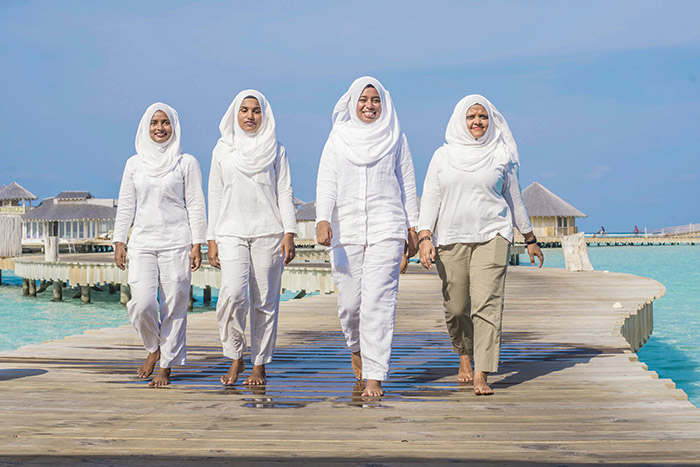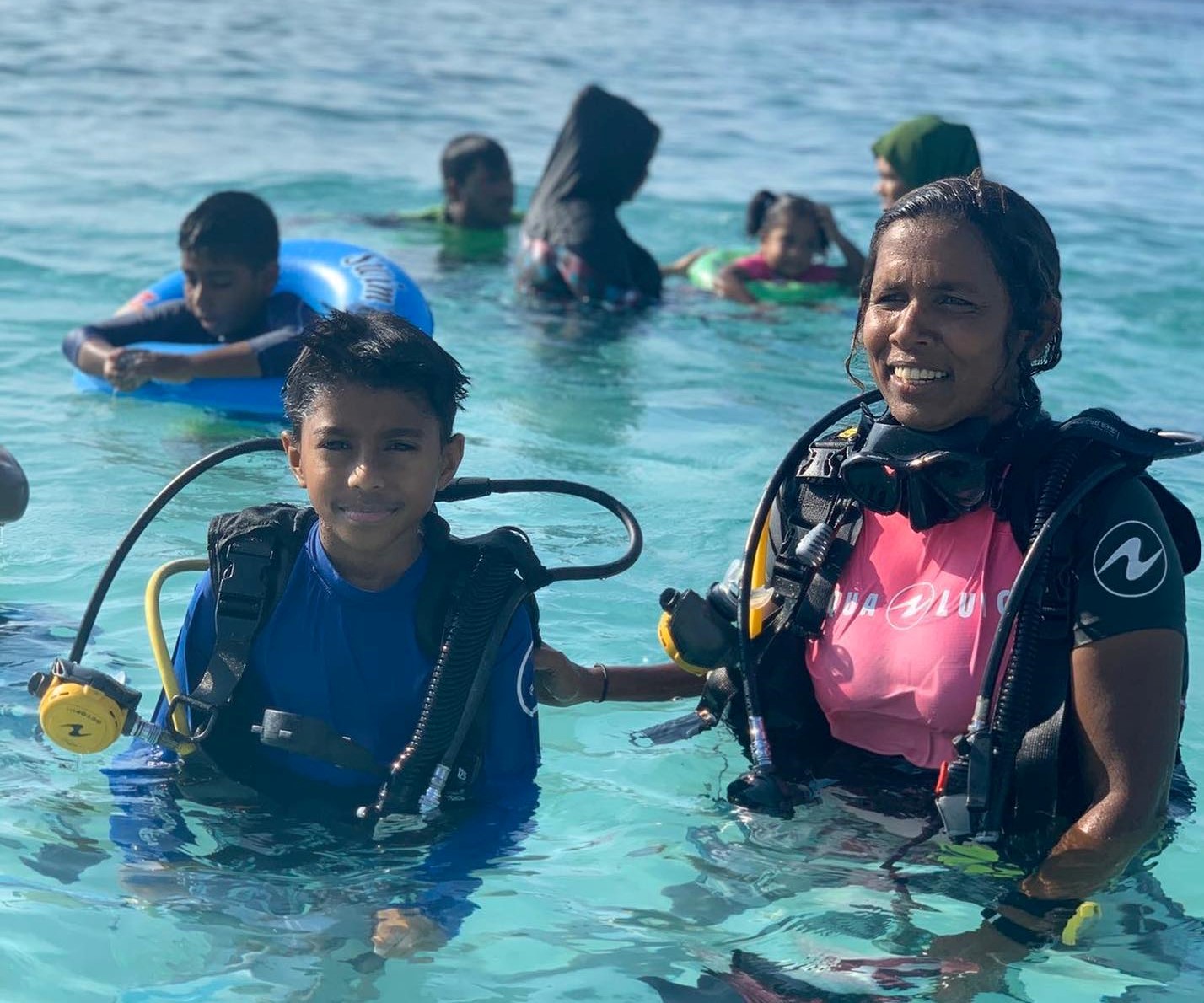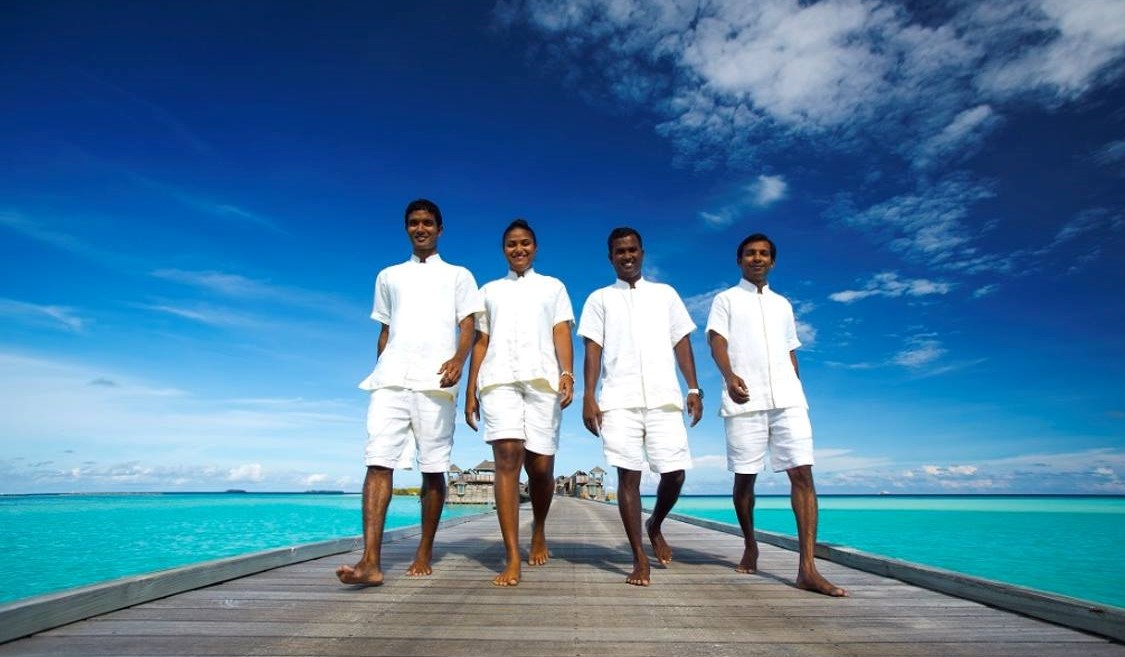

Tourism industry has been a major employment provider in Maldives for decades. There are over 50,000 people working directly and indirectly in Maldives tourism industry. Majority of them are working in resorts. There are no exact figures of the locals versus foreign employee ratio available. However, it is likely that more than half of the employees working in the Maldives tourism industry are foreigners. Meantime, Maldives accounts for 5-7% unemployment rate and this percentage has been increased due COVID-19 pandemic.
In recent years, hiring foreign talents over locals in Maldives tourism industry has become a hot topic and there have always been a lot of controversies surrounding the topic. The topic has always been debatable among the public: Why is the industry hiring foreign talents over locals?
A hospitality masters graduate from a top university in Europe, who has experience in working at few resorts in Maldives said that he has been struggling to get a job for the last six months. Every time he approached a management position, he was rejected and a foreigner was chosen over him. There was no specific reason mentioned by any of the employers.
There are many Maldivians actively looking for jobs in the tourism industry. Foreigners are hired for the jobs which Maldivians can fill in, as per many Maldivians. Therefore, we discussed with the tourism industry professionals about this matter and tried to get their thoughts on this.
Why do you think foreigners are preferred over Maldivians in the tourism industry?

Photo: Soneva Jani
The tourism industry professionals raised 3 main reasons for this.
1- Position specific reasons
Position specific reasons like the possibility of getting locals for spa, bartending, stewarding (dishwashing and kitchen cleaning) and senior culinary positions is low, as per the experts. Ahmed Afrah, Executive Director, Canopus Maldives highlighted this labor shortage of Maldivians.
“Locals do not have the necessary skill sets for culinary and spa positions,” Hassan Saeed, Resort Manager of Dhigali Maldives said. “Bartending is limited due to the nature of work involved – service of alcohol. Locals have the tendency to frown at some of the positions. These include the lower level jobs including stewarding and cleaning.”
However, Ali Shamin, HR Director of Hilton Doha opposed this. “Personally, I do not see any a reason why expats should be chosen over Maldivians, there is a general misconception about Maldivians that they do not prefer to work in certain departments,” he stated. “I disagree as I have personally experienced this in Maldives. When I was first appointed as a Head of HR, I was told that I would never get Maldivians to work in stewarding and in laundry. 9 months later I managed to change all 33 expatriate team members in these 2 departments to a 100% Maldivian team. Proud to say that all of them have completed GCE O’ levels and some with GCE A’ levels as well. I strongly believe that if given the opportunity and training we will have very dedicated and committed Maldivians who are willing to work in these areas.”
2- Average turnover high for Maldivians compared to Foreigners
It is a strategic choice for management to have a stable team who will stay together for longer. Hassan Saeed elaborated that his experience and in the assumptions of most managers, foreigners are more likely to serve the company for the full length of their contract.
“This is particularly relevant to entry level positions,” he said. “In an industry where the average turnover is high in comparison, foreigners are supposed to provide stability, continuity of service consistency and brand standards.”
Nasih Moosa, Owner of UI hotels reiterated saying that it’s difficult to rely on Maldivians as turnover rate is higher compared to foreigners.
“Sometimes locals leave the job whenever they want,” he said. “Also, numbers are increasing due policy level issues. Currently, there is no proper employee monitoring system in tourism industry.”
3- Shortage of labour pool
A possible third reason for the preference of foreign workers could be the shortage in the labour pool. On average, there are over 400 vacancies within hospitality operations but the number of locals actively looking for work is nowhere near this number.
“The available labour pool in the local labour market is also very picky and they do not rush to take up initial offers,” Hassan Saeed said. “This delays the recruitment process and managers who understand this would opt for foreigners.”
Hussain Afeef, Director of Talent Management and HR at LUX* Resorts Maldives said that we have not trained enough locals in respective areas that are required in the hospitality industry, not just resorts and hotels, but all the other services related to hospitality.
“Investors and Operators need to run the operation and what we have seen is that they hire those who are available from the global markets,” he said. “Most operators, at times, have taken the easy way or what’s required to run the hotels. It is not necessarily they are preferred over locals. This is a topic we could argue to a great extent. There are lots of misconceptions and biases towards the same; without data and well-studied research, we cannot conclude such. In saying the same, the local authorities, training providers, schools and even NGOs must work hard to train the local talents we need, encourage them to join and guide them. We must also make their parents aware that working in the hospitality industry is a brilliant career, and it is one of the best jobs in the world.”
Are there any specific skills Maldivians lack compared to foreign workers?

Photo: Moodhu Bulhaa Dive Centre
Both Nasih and Afrah agreed that Maldivians are much better in terms of skills. Ali Shamin also said that there are no specific skills Maldivians’ lack in comparison to foreigners. He highlighted that there may be some language expertise that may lack as our key language is English since the beginning.
“It is enlightening to see a lot of Maldivians have personally invested their own time and resources to learn languages and are working as language specialists as well,” he said. “In my tenure in Maldives we always had German internship students or Russian interns who are working as Guest Relations Agents, however at the same time we actively searched for locals with these skills and interest to learn foreign languages. We sponsored an F&B Attendant and sent him to Russia to learn Russian and he ended up working as a GSA after his course, which again is a great example if you as an HR really want you can change it.”
According to Shamin, there are numerous locals who have come out of Hotel School and Faculty of Engineering who are willing to work in resorts, they may not be initially job ready. However, he suggested that the employer should have programs in place to make them job ready after their studies/ traineeships are completed.
Similarly, skills, whether essentials or technical, is something we all learn, as per Afeef. “We need to create a culture of teaching and continuous learning in all organizations. What we lack the Maldives is culture of continuous learning. There are several professionals who achieve a certain educational qualification, and from there, they stop learning; also we have several local experts who are of world-class, yet they don’t make an effort to share their learning proactively with the younger generation and school leavers.”
Afeef highlighted that those who come from global job markets comes with perhaps a different mindset. The mindset of taking personal responsibility, a sense of urgency, a proactive approach, knowing they are here for a purpose and several other essential skills which many of our locals do not get to learn from their schools.
“Educational certifications do not prepare students for specific jobs,” he said. “It prepares them to deliver what’s on the textbook. When they go to workspace what they are required to deliver is totally different. Just one example: If you invite for an open job application day, one from the global job market will arrive in very professional attire, whereas we have seen some locals shows up in jeans and t-shirt without proper grooming. Yet, they bring wonderful certificates. One needs to ask the question how this happened? Which essential skill is missing? The answer is that where there is no learning culture that can complement the experience with the required mindset and essential skills, we will see more and more skill gaps. What I know is when it comes to the learning spectrum, there is no limit to what any human being can explore and learn.”
On the other hand, Hassan Saeed suggested a specific group of skillsets including culinary, spa and some engineering positions that require very specific skill that are hard to come by in Maldives.
What are the areas in which Maldivians can improve to be the chosen one?

Photo: Gili Lankanfushi
While Shamin said that he does not see Maldivians as any less skilled than foreigners, Nasih recommended that we need to change our working culture. That we need the new generation to learn work ethics and let them feel the importance of work. Nasih also said that more training in the areas such as accounting, purchasing, sales & marketing is needed. Afrah agreed with this saying school leavers should be offered trainings and should be guided in to join fields like dive guides, surf guide, etc.
“One major improvement required is attitude and self-discipline,” Hassan said. “Young men and women who wish to join this industry must have a long-term focus and be career minded. Progress from one stage of career to the next level is not automatic and nor is it determined by the number of years one serves at a lower position. Progress and advancement require dedication and hard work. More young people should also be willing to start at entry level jobs and be open to trying out new things to enrich their experience. We should respect contractual obligations and serve adequate notice when leaving employers. Moving from one employer to the other should be a calculated and well thought out thing – not an abrupt decision.”
Afeef suggested strategies not just at individual or company levels, but a national level agenda to drive these efforts.
“Right now we do not have such which is a huge challenge,” he said. “There are several areas you can hire locals, resort administrative jobs, marine biologists, marketing, sales, graphic design, resort nurse, engineering (various areas) and even culinary roles.”
Afeef mentioned that these are some areas where we see a lot of expatriates.
“We need to have a plan,” he elaborated. “You can bring a Marine Biologist for two years, and ensure he trains a local as Assistant Marine Biologist and perhaps get the local promoted to that role within two or three years’ time. To make this happen, we need a national-level strategy. Training, learning, educational programs, and vocational programs won’t resolve this. We need a robust system to follow up. Work permit quota given to the company should be based on several factors and one of them can be their commitment to develop locals and bring more locals to the business. Right now, there is no holistic approach; everyone does their own thing, and barely many resorts maintain even the stated ratio per the current labour law.”